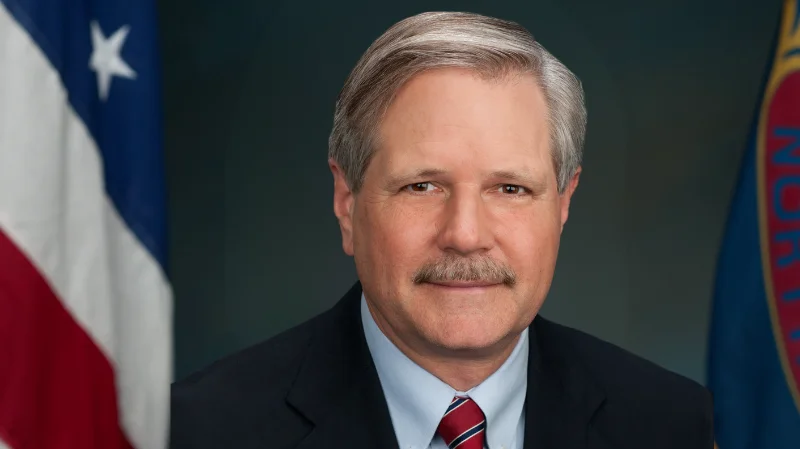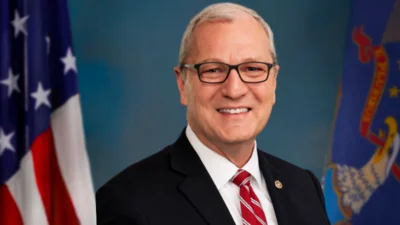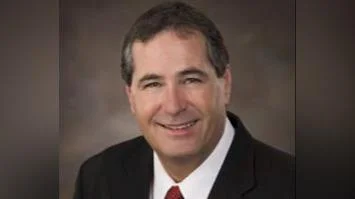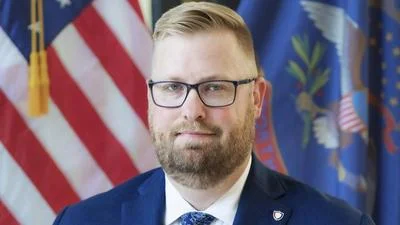Senator John Hoeven, U.S. Senator of North Dakota | Senator John Hoeven Official website
Senator John Hoeven, U.S. Senator of North Dakota | Senator John Hoeven Official website
Senator John Hoeven released a statement following the House of Representatives' approval of the One Big Beautiful Bill. The legislation aims to provide permanent tax relief for families and small businesses, strengthen border security, rebuild the military, support farmers and ranchers by advancing key provisions of the farm bill, and promote U.S. energy production.
According to Senator Hoeven, "The One Big Beautiful Bill will make our nation more prosperous and more secure. We worked to pass this legislation to provide permanent tax relief for American families that will enable them to keep more of their hard-earned paychecks. We invest in priorities like border security, national defense, unleashing American energy dominance and passing the heart and soul of the farm bill for our farmers and ranchers. At the same time, we find $1.6 trillion in savings to help with our debt and deficit. This bill delivers on the priorities that President Trump promised to get our nation back on track."
The bill permanently extends current individual tax rates established under the Tax Cuts and Jobs Act. It is projected to deliver $4 trillion in tax relief, potentially increasing take-home pay by up to $10,900 over four years for typical families through economic growth and tax reductions.
For individuals, families, and seniors, new or expanded deductions include no taxes on tips or overtime pay for workers; an enhanced child tax credit set at $2,200 (with $1,700 refundable) adjusted for inflation; permanent estate tax relief with higher exemptions; savings accounts for newborns; and a new $6,000 deduction aimed at low- and middle-income seniors which could result in zero federal taxes owed on Social Security benefits.
Small businesses are also targeted through permanent extensions of deductions such as Section 199A for pass-through entities—including farmers and ranchers—and Section 179 expensing limits raised to allow larger investments in equipment. Other measures include accelerated depreciation options for new facilities built between 2025-2028.
In agriculture policy, the legislation incorporates significant elements from Hoeven’s FARMER Act into what is described as a seven-year farm bill reauthorization. Changes include increased reference prices under Agriculture Risk Coverage (ARC) and Price Loss Coverage (PLC) programs—by 10% to 20%, depending on commodity—with adjustments tied to inflation so prices remain relevant as markets shift. North Dakota producers are expected to benefit from immediate payment increases starting with the 2025 crop year.
Crop insurance premium support is raised across most levels by three-to-five percentage points. The Supplemental Coverage Option's coverage level increases from 86% to 90%, while premium support rises from 65% up to 80%. Livestock disaster programs see enhancements: indemnity payments now cover all market value losses from federally protected predators or up to three-quarters for weather-related events.
Energy policy changes roll back certain environmental regulations associated with prior administrations’ climate initiatives while encouraging domestic production through higher incentives for carbon capture used in oil recovery operations; mandated federal lease sales; expedited coal leasing decisions; lower royalty rates reverting to pre-2021 levels; repeal of natural gas taxes introduced during President Biden’s term; regulatory relief efforts; investments in petroleum reserves; and cancellation of several existing environmental programs.
Military spending includes $25 billion dedicated toward hypersonic weapons testing infrastructure—partly supporting North Dakota-based missions—and $15 billion earmarked specifically for nuclear deterrence capabilities at Minot Air Force Base: including new Sentinel ICBMs ($2.5 billion), sustaining current Minuteman III missiles ($500 million), plus procurement of additional MH-1139 Grey Wolf helicopters ($200 million). The bill also allocates funds aimed at improving service members’ compensation packages along with housing, health care access, childcare services, and education benefits.
Border security provisions fund completion of physical barriers along the southern border alongside technology upgrades such as cameras and sensors designed to deter drug trafficking or human smuggling operations. Additional funding is provided for hiring personnel as well as equipping state/local law enforcement agencies cooperating with federal authorities via Operation Stonegarden grants.
Finally, water infrastructure receives attention through a proposed $1 billion allocation supporting Bureau of Reclamation projects like Eastern North Dakota’s Alternate Water Supply Project (ENDAWS).






 Alerts Sign-up
Alerts Sign-up